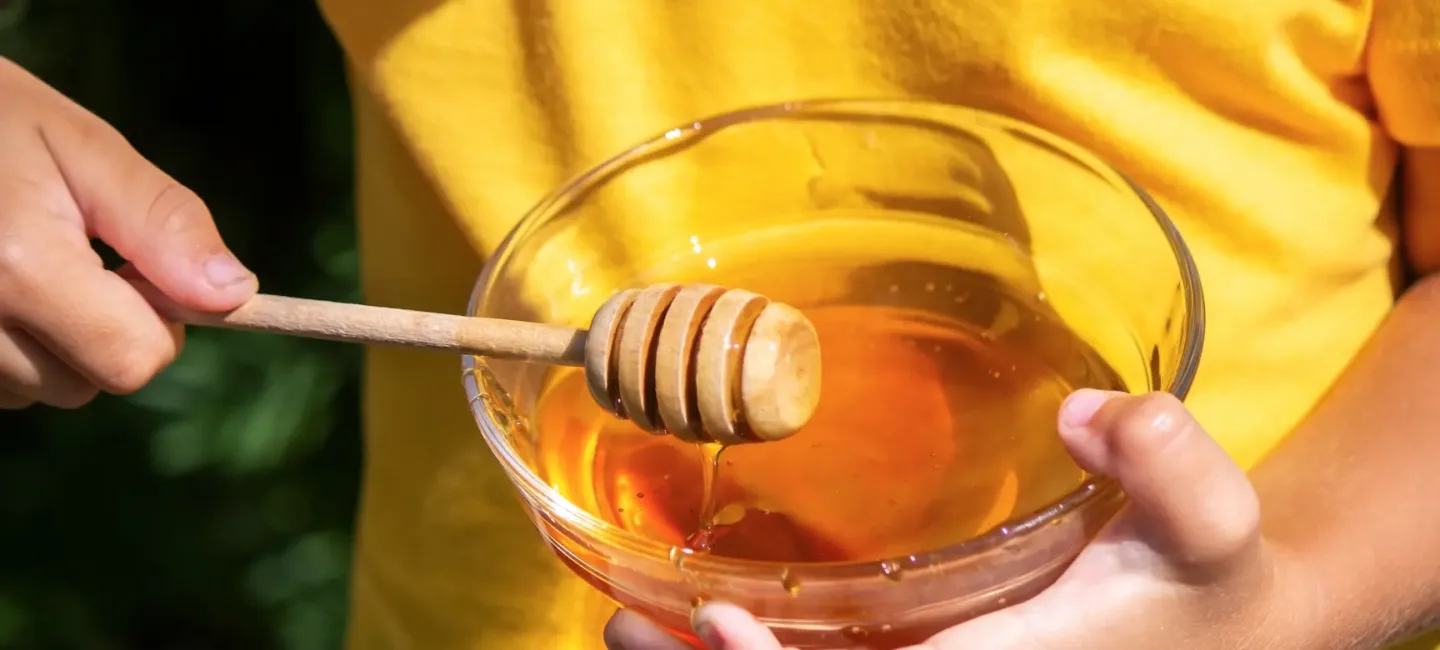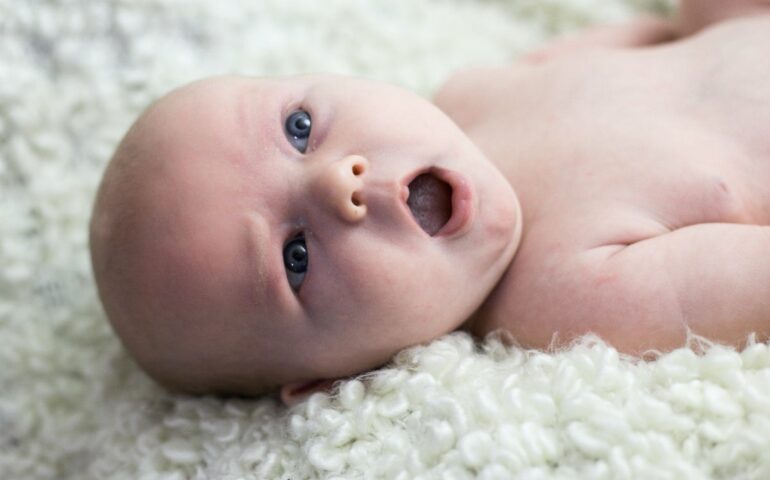
Honey, although a natural sugar valued for its taste and benefits on sore throats, raises questions about its introduction into infants’ diets. When is it safe to offer honey to your child? In what quantity?
Honey and children: let’s take a closer look.
From what age can a child have honey?
Honey is a nutrient- and vitamin-rich food, often appreciated for its soothing properties. However, note that — according to the World Health Organization (WHO) — it is strongly discouraged to give honey to babies under one year old.
This precaution aims to prevent the risk of botulism, a rare but potentially serious illness caused by spores of Clostridium botulinum (a bacterium) carried by bees. These spores can be present in honey and may affect an infant’s still-developing digestive system.
From the age of one, a child’s immune and digestive systems are generally developed enough to digest honey safely.
Want to learn more? Feel free to download the May app, where you’ll find plenty of resources to support and guide you throughout your journey as a new parent.
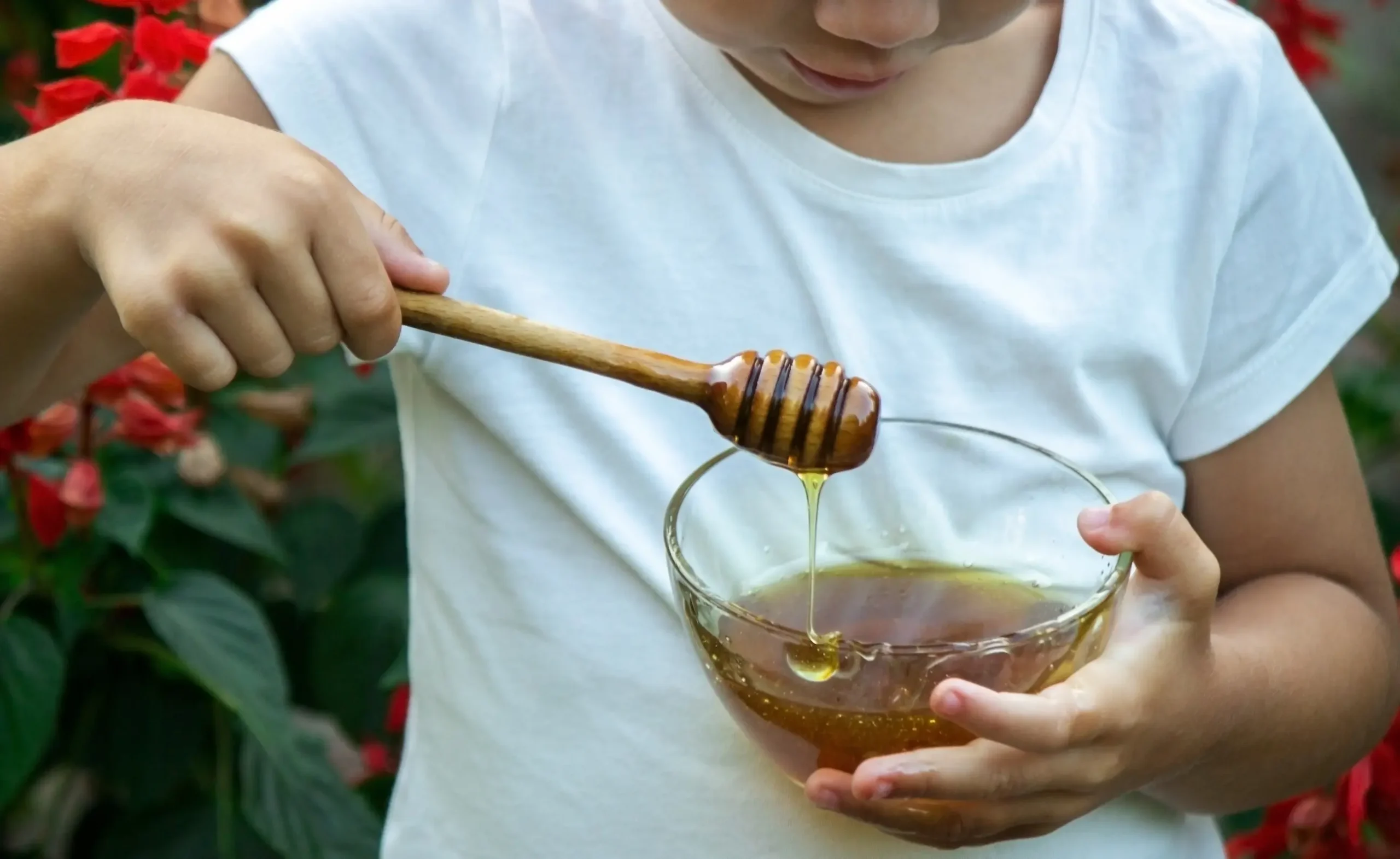
Why is honey not recommended before age 1?
There are several reasons why honey is not recommended for children under one.
Botulism
As mentioned earlier, the risk of botulism is one of the main reasons honey is strongly discouraged for infants. In very young children, the digestive system is not yet mature enough to destroy the bacteria that may be present in honey, which can lead to the production of toxins responsible for the illness, potentially causing serious respiratory issues.
Symptoms of botulism may include:
- persistent constipation,
- general weakness and lethargy,
- fever and irritability,
- difficulty sucking or swallowing,
- diarrhea or abnormal stools.
It is essential to consult a doctor if you notice any of these symptoms in your child.
Sugar
Honey is also a source of sugar, which should be limited in very young children. Infants need nutrients for growth, mainly provided by breast milk or infant formula. Introducing sugar—even natural sugar—too early can disrupt this nutritional balance.
Here are some reasons why it’s important to moderate sugar intake in young children:
- Added sugars can cause an imbalance in gut flora, which is essential for proper digestive and immune system development.
- High sugar intake from a young age can promote a sweet tooth, increasing the risk of long-term unhealthy eating habits.
- Sugar can also lead to tooth decay and hyperactivity.
Be careful not to demonize sugar! While it’s not suitable for babies, you can offer it — in small amounts — to your child once they are a bit older.
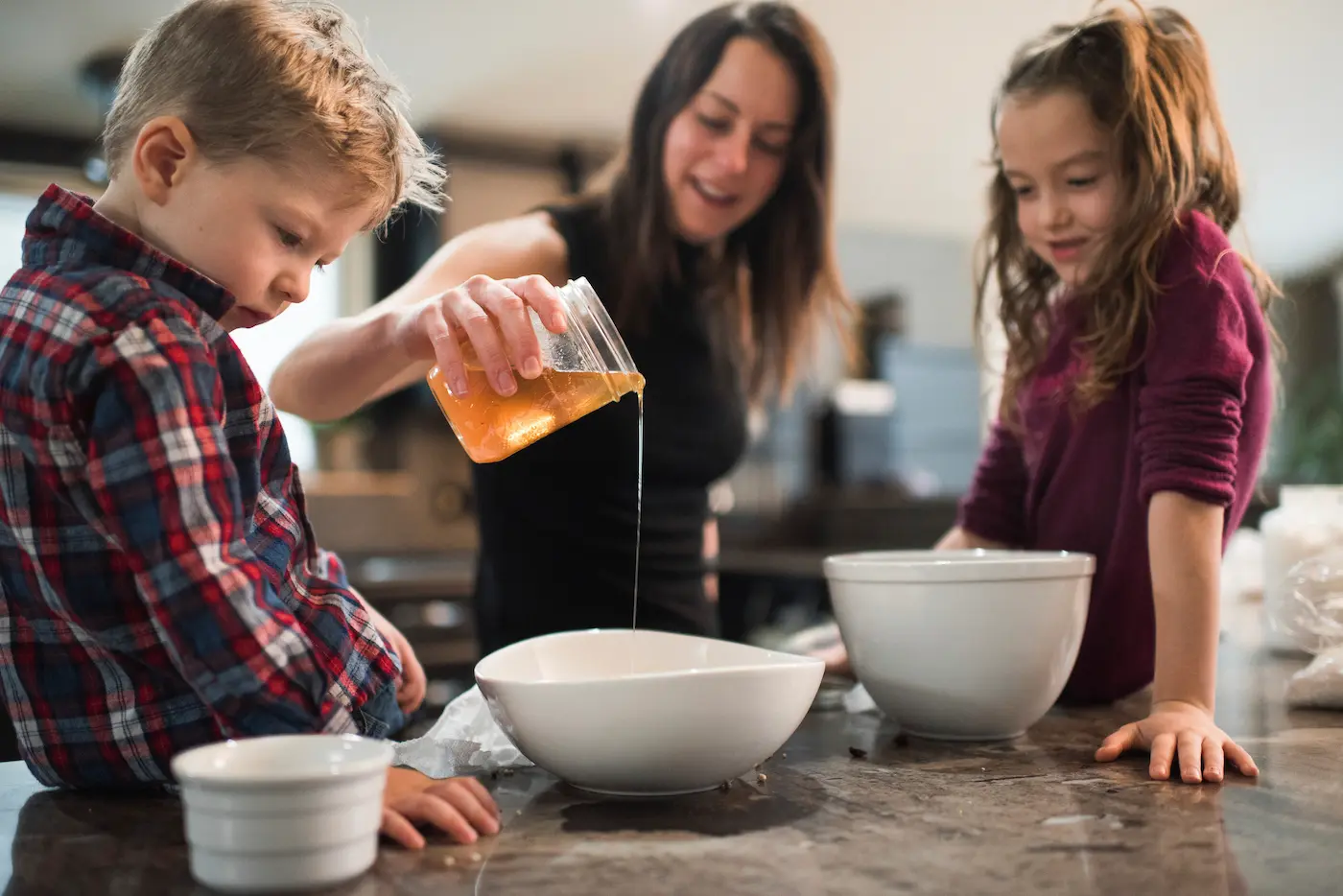
The benefits of honey for older children
Honey indeed offers many benefits for older children. First of all, honey is known for its soothing properties. In cases of dry cough or sore throat, a teaspoon of honey can help relieve the cough.
Nutritionally, honey is much more than just sugar. It is rich in vitamins and serves as a nutrient source.
- Source of vitamins and minerals: honey contains B vitamins that support energy metabolism development.
- Immune system support: thanks to its antibacterial properties, honey can help strengthen your child’s immune system, especially during colder months.
- Digestive aid: in children over one, honey can help balance gut flora, helping to prevent constipation and improve bowel regularity.
Note that, of course, honey is not the only source of these nutrients. Therefore, it is not essential to give your child honey.
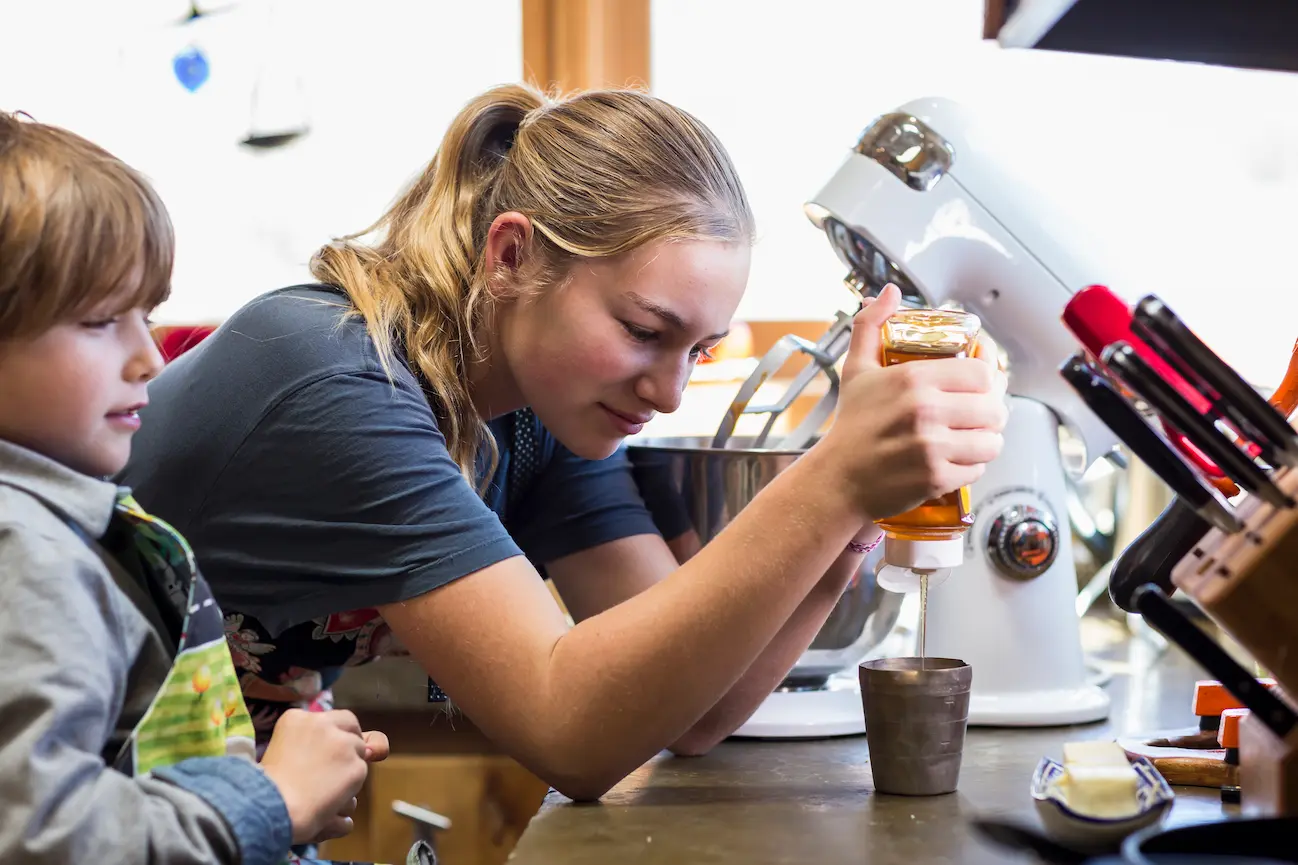
How to introduce honey into my child’s diet?
Here are some tips for adding honey to your child’s diet from the age of one:
- Start with small amounts: introduce honey in small doses to observe any allergic reaction or digestive issue. One teaspoon is enough at first.
- Mix it with other foods: add honey to foods your child already eats, such as plain yogurt or cereal. This allows them to get used to the new sweet taste while benefiting from its nutrients and vitamins.
- Avoid baby bottles: do not mix honey into a bottle to avoid excessive sugar intake and the risk of cavities. Instead, add it to solid foods.
- Watch your child’s reaction: while rare, intolerance or allergic reactions can occur. Look out for signs like skin rashes, digestive issues, and consult your healthcare provider if needed.
- Moderate consumption: although honey is a natural sugar, it should be consumed in moderation to avoid nutritional imbalances and long-term poor eating habits.
Honey is therefore an ingredient worth considering once your child is over one year old. However, be careful not to overuse it as it remains a naturally high-sugar food. If you have questions about your child’s diet, feel free to consult your doctor or pediatrician or ask our healthcare professionals, available 7 days a week via the May chat.

**
Photo credits: Image-Source | Pressmaster | Mint_Images | solovei23
This text was translated from French by an artificial intelligence. The information, advice, and sources it contains comply with French standards and may therefore not apply to your situation. Make sure to complement this reading by visiting the May ES/UK app and consulting the healthcare professionals who are supporting you.
